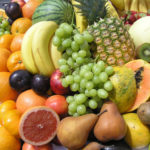
What is a fruitarian? Is fruitarianism the ultimate health and eating goal? Learn the importance of greens and how much of them should we eat. End the confusion between the botanical and culinary definitions of fruit. Continue reading



What is a fruitarian? Is fruitarianism the ultimate health and eating goal? Learn the importance of greens and how much of them should we eat. End the confusion between the botanical and culinary definitions of fruit. Continue reading
If you have questions about fitness, you want to read this article. In a simple “yes and no” format, Dr. Graham answers the 101 most common questions about fitness. Continue reading

Pay no attention to your fitness and it will go away. Add in that which is missing from your program and your fitness will improve dramatically. By paying more attention to the weakest link in any aspect of your health regimen, including your physical fitness, you stand to access the greatest possible return on investment. Continue reading
In the raw-food arena, everyone seems to be concerned about nutrients in one form or another. If you want to know whether you are getting enough, you can follow these 12 simple guidelines. Continue reading
Olives have a well-respected place in the annals of human history. They have been used for thousands of years, almost as long as the banana, a fruit with one of the most ancient histories of all. Olives, however, were not venerated as a food source; instead they were used as fuel and animal fodder. For this reason, and no other, olives earned the high regard and frequent mention of both ancient and modern peoples. Continue reading
If you have ever been confused about the differences between the medical model, alternative medicine, and the health creation available through Natural Hygiene, read this article. It may be the first time that you can truly appreciate the marvelous health system that Nature has provided for us, and how to tap in to it in order to accumulate and create your own vitality and high level of health. Continue reading

Most people take the following route to raw foods: they go vegetarian, then vegan, then raw. Some take the new shortcut—from cooked directly to not cooked. There are, of course, many variations on this theme. Whichever pathway you follow, the following profound nutritional truths are worthy of consideration … Continue reading
Should we supplement our diet or correct it? It seems we have had the wool pulled over our eyes again, that the salesman’s classic sleight of hand is upon us. Health seekers are more vulnerable to fraud, it seems, than folks who are not looking for or open to change. And fall for it we have, big time. Continue reading
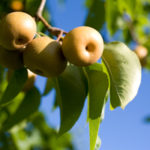
Is fruit a snack, a dessert, a meal, or something to be avoided entirely? Fruit has been consumed by people for as long as there have been people. It has a lengthy and prestigious history that has of late been somewhat tarnished. I believe fruit has been given a bad rap. Continue reading
One of the major misconceptions about food is that it is a source of energy. Perhaps this is partly due to the fact that in the nutritional sciences, the words “fuel” and “energy” are synonymous. But in Natural Hygiene, “energy” and “fuel” mean different things. Food is not a source of energy, but it IS a source of fuel. Continue reading
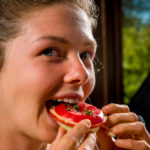
What is metabolism, anyway? In this article, you will learn what, exactly, the term metabolism means. And we will set the record straight concerning fast versus slow metabolizers. We will bring to light the contradictions found in the many dietary recommendations that have to deal with metabolism. We encourage you to draw your own conclusions. Continue reading

Basic maintenance of the human frame is relatively simple. Health needs must be met, of course. But keeping your body beautiful has never been easier. Continue reading

How did we let our forms deteriorate from the god or goddess that our parents saw in us as children, and what can we do about it now? Most of us know the answer to the first part of the question, and it is unique to each individual. It is the second part that really needs answering, and is the focus of this article. Continue reading
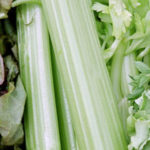
Mention celery in any group of people and you will usually get very polarized responses. In general, most folks don’t have very strong feelings about carrots, lettuce, cucumbers, or other vegetables, but when it comes to celery, it seems they either love it or they just plain hate it. And their reasons are as varied as are the characteristics of this many-splendored veggie. Continue reading
The continuation of Dr. Graham’s article delineating the most important factors involved in athletic recovery. Continue reading
Are you overtraining or underrecovering? The answer to this question may be easier than you think. If you would like to get more from your fitness, and be active for a lifetime, this article is for you. Continue reading
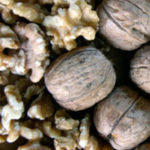
The low-fat diet (a maximum of roughly ten percent of total calories consumed) is universally recommended for maximum health and fitness results, by those health experts who consistently help people reverse disease and live vibrant lives. Understanding the low-fat concept can be a bit tricky for some people, as even small volumes of fat can provide such high quantities of calories as to be misleading. Continue reading
When a piece of machinery is running efficiently and is properly cared for, we do not expect it to overheat. Something must go very wrong before overheating becomes a problem. The human body works in much the same fashion: properly cared for, our temperature never reaches the danger zone we call “fevered.” Continue reading
What if you had only one car, issued to you by the government when you turned eighteen? What would you do with it? This article presents an analogy for you, our health-concerned reader, to consider … Continue reading